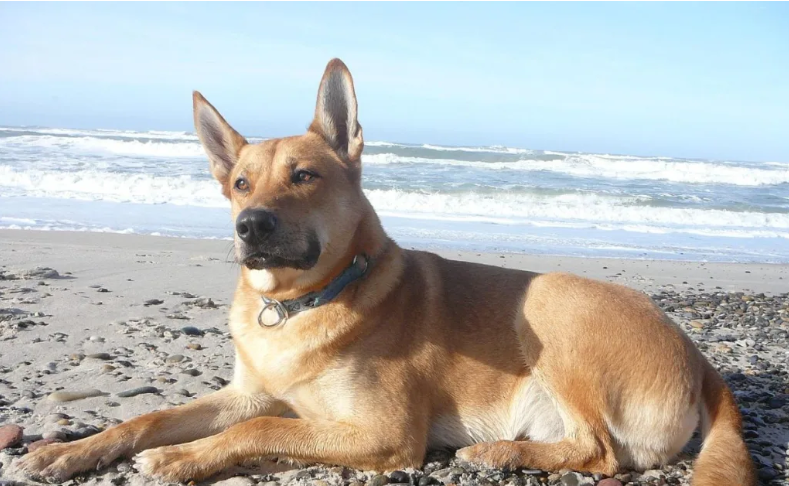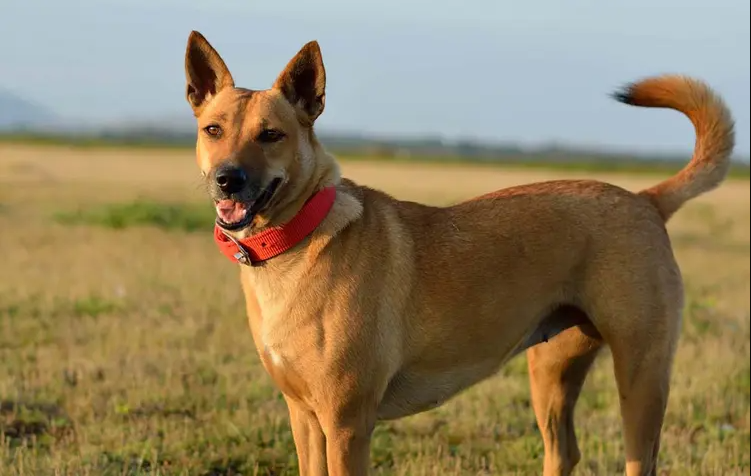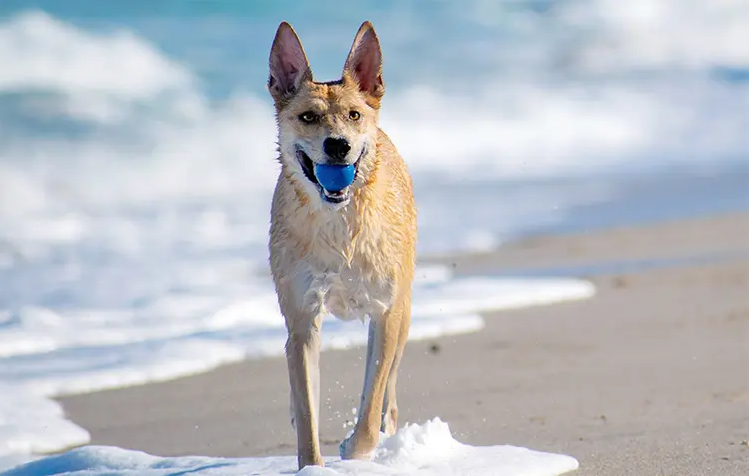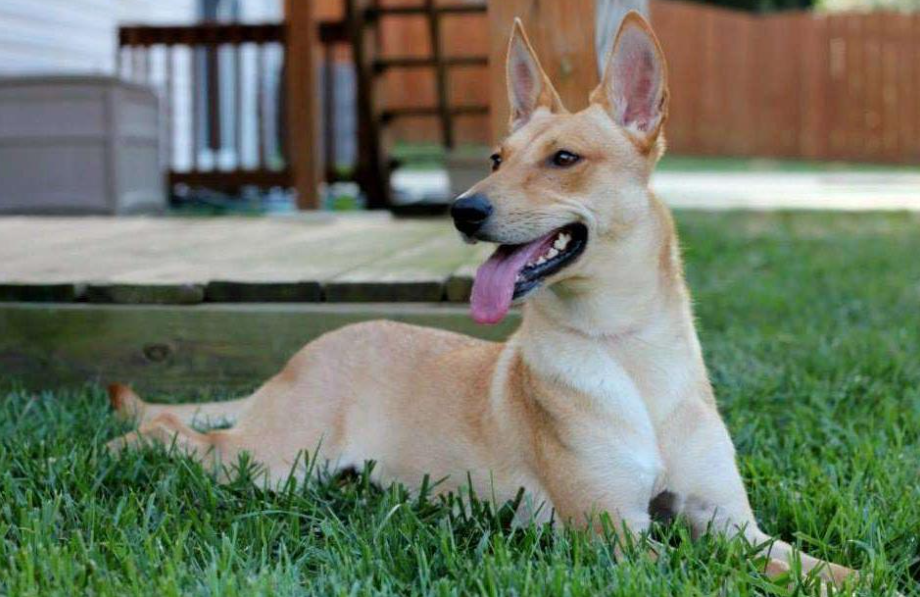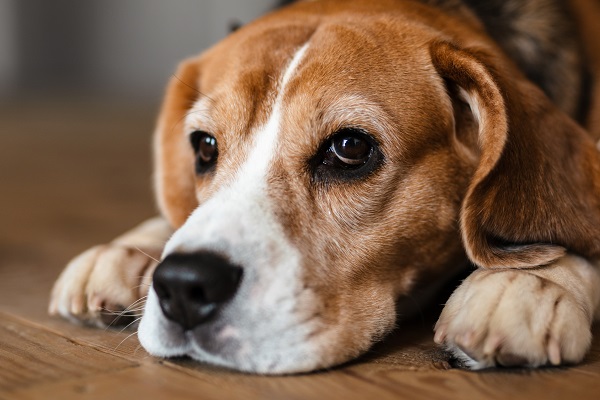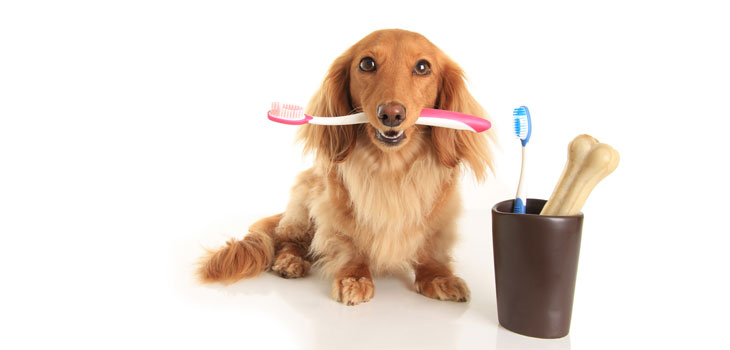Imagine a dog with the spirit of a wild dingo, loyalty like Old Yeller, and a heart full of love for its family. That is the unique and captivating nature of a Carolina Dog. Bringing a Carolina Dog Puppy, with its jackal and fox-like features, would have a history intertwined with Native Americans that has captivated hearts for centuries.
The Carolina Dog is a medium-sized breed with a lean, athletic build, alongside a distinctive fox-like appearance, a long snout, erect, pointed ears, and a fish-hook-shaped tail. Its short, dense coat comes in shades of red, ginger, yellow, tan, and black, often with white markings. While its striking resemblance to dingoes might hint at a wild nature, Carolina Dogs have a gentle soul that makes them wonderful companions.
This blog is your ultimate guide to navigating the world of Carolina. Whether you’re considering welcoming one into your life or you’ve already fallen for their charm, this read will provide the knowledge to embark on a harmonious and joyful journey together.
From understanding their unique needs and training techniques to decoding their primitive instincts and fostering a deep bond, this blog is specially articulated to help you explore everything you need to know about raising a happy, well-adjusted Carolina Dog puppy.
Is a Carolina Dog Right for You?
If you have yet to bring Carolina dog puppies to your home, it’s crucial to pause and ask yourself: Is this the right breed for me?
Carolina Dogs, with their captivating wild charm, are not your typical domesticated dog. Their unnatural instincts require an experienced and dedicated owner who can provide the right environment, time, training, and leadership. Think of yourself less like a dog owner and more like a benevolent pack leader. Can you fill in those shoes?
To first-time dog owners, this breed might become too challenging for you. Carolina Dogs flourish in rural environments with unending space to tire themselves out and explore. A fenced-in yard in a suburban or rural setting may work for Carolina dog puppies.
However, beware! The little Fido is generally an expert climber and escape artist. They’ll definitely need a good dose of daily exercise like hikes, runs, and engaging playtime to keep them happy and prevent boredom-induced mischief, such as digging or chewing your shoes.
Carolina Dogs also have a strong pack mentality, needing companionship and suffering in isolation. They require significant time for physical and mental stimulation. Loyal yet cautious, these dogs benefit greatly from early socialization. Their high prey drive makes them unsuitable for small pets. Coexistence with other dogs is possible with careful introduction and supervision.
Finally, remember that responsible pet ownership comes with financial responsibilities as well. Veterinary care, high-quality food, training, and other essentials can add up. Be sure you’re prepared for the ongoing costs to ensure your Carolina Dog lives a long, healthy, and fulfilling life.
If all these checks ticked off, you should be ready to welcome one powerhouse of a dog into your family. Here’s what you need to do while bringing Carolina dog puppies home.
Ready, Set, Puppy!
Puppies are basically tiny, adorable tornadoes. So, before your Carolina puppy arrives, you have got to transform your house into a puppy-proof fortress!
Creating a Safe Space:
Think Fort Knox: Your pup’s designated area should be like its own mini apartment. It needs a comfortable bed, always accessible food and water bowls, and engaging toys to keep those chomping teeth busy.
Operation Hide and Seek: Put away anything your puppy could mistake for a chew toy (shoes, cords, that overpriced Elvis collection). Trust us, if it can be reached, it will be chewed!
Crate Training 101: A crate can be your pup’s safe haven and a lifesaver for potty training. But introduce it slowly and positively – no one wants their crate to feel like a doggy jail.
Finding a Reputable Breeder:
Adopting a Carolina Dog? Awesome choice! However, finding a reputable breeder is crucial. Puppy mills are a huge no-no!
Do Your Research: Look for breeders who are active in Carolina Dog clubs and have a good reputation in the community.
Red Flags: Beware of breeders who:
- Have multiple puppies available at once.
- They won’t let you visit their facilities.
- Dodge your questions or seem pushy.
- Don’t provide health screenings for their dogs.
Ask All the Questions! A good breeder will be happy to answer questions about:
- Their breeding practices.
- The parents’ temperaments and health history.
- The puppies’ socialization and care.
Adoption as an Option:
Want to give a Carolina Dog a second chance? Adoption is a fantastic way to welcome a furry friend into your home!
- Check Out Shelters and Rescues: You might be surprised how many Carolina Dogs end up in shelters. Breed-specific rescues, like Saving Carolina Dogs Rescue and Adoption Network, are also great options.
- Don’t Judge a Book by Its Cover: Many Carolina Dogs are mistaken for mixed breeds. Keep an open mind and ask the shelter staff about any dogs that fit the Carolina Dog description.
Whether you choose a breeder or adoption, finding the perfect Carolina Dog is a journey. So, be patient, research, and prepare for years of tail wags and adventures!
Carolina Dog Ownership: Daily Delights and Training Triumphs
Feeding and Nutrition:
You have to keep that Carolina Dog puppy fueled for adventure! Feed them high-quality food designed for active breeds, packed with all the necessary nutrients. Also, please work with your vet to create a feeding plan based on their age, size, and activity level. Puppies usually need three meals a day because of their higher metabolism.
Exercise Requirements:
Carolina Dogs are natural explorers, so they need at least an hour of exercise daily. Walks are great, but get creative!
Tap into their inner athlete: Carolina Dogs excel at agility, flyball, and other dog sports.
Hide and seek: Hide treats or toys in the yard and let them use their keen sense of smell.
Embrace the fetch: They love a good game of fetch and running free.
Go for a hike: Explore nature trails and let them sniff to their heart’s content.
Keeping them active prevents boredom and destructive behaviors like barking, digging, chewing, and climbing.
Training and Socialization:
Carolina Dogs can be independent and stubborn, so training requires patience and a positive approach. Start early and focus on positive reinforcement: reward good behavior with treats, praise, and play.
Early socialization is equally important! Expose them to new people, dogs, and situations. This helps them build confidence and become well-adjusted adults. If you encounter challenges, don’t hesitate to seek professional help from a certified dog trainer.
Grooming Essentials:
Good news! Carolina Dogs are low-maintenance groomers. Their short, dense coat only needs weekly brushing. Bathing? Only when they roll over something particularly dirty or stinky.
Remember those nails! Trim them regularly to prevent clicking and overgrowth, and clean their ears regularly to prevent infections.
Health Monitoring:
While Carolina Dogs are generally healthy, it is important to keep up with vet check-ups. They may also be slightly extra sensitive to ivermectin, which is found in some parasite treatments.
Be watchful for:
You can ensure that your Carolina Dog lives a long, happy, and healthy life by providing proper care and attention.
Decoding Your Carolina Dog’s Language
A Carolina Dog exerts some very unique traits, such as its ancient, wolf-like primitive instincts and pack dynamics.
Primitive Instincts:
Carolina Dogs are unique because they are one of the few breeds considered primitive dogs, meaning they are the result of natural selection rather than selective breeding. Because of this, many Carolina Dogs still exhibit behaviors and traits more closely associated with their wild ancestors, such as wolves.
For example, female Carolina Dogs have three heat cycles in quick succession and then settle into seasonal reproductive cycles, which helps to ensure breeding in the wild before diseases like heartworm can take their toll. Additionally, Carolina Dog puppies are fed regurgitated food paste, and the breed’s activity level is more influenced by the seasons than other breeds.
Carolina Dogs are also known for their strong prey drive, which can make them a challenge for first-time owners or for homes with smaller pets. They are also known to be shy and suspicious around strangers, but this behavior disappears towards humans that the dog accepts into their pack.
Pack Dynamics:
Carolina Dogs possess a strong pack mentality, resulting in their deep loyalty to their families. In their natural habitat, they exist in structured groups, hunt collectively, and nurture their offspring as a family. This pack behavior extends into their domesticated lives, and it’s important for their owners to recognize this mentality to foster a joyful and healthy environment.
A Carolina Dog’s pack leader should command loyalty, not fear, because dogs may leave the pack if they fear their leader. Owners can establish leadership through positive reinforcement training, starting early and focusing on rewarding good behavior with treats, praise, and play.
Carolina Dogs can live well with other dogs if they are introduced in puppyhood. However, their prey drive may make them unsuitable for households with smaller animals.
Communication Cues:
Although Carolina Dogs are not known for being overly affectionate, they can form strong, loving bonds with their families. Understanding their body language is key to strengthening the bond between a Carolina Dog and their owner.
Tail: The Carolina Dog’s fish-hook-shaped tail is often held low around strangers and wags when with family. In the wild, they also use their tails to signal each other.
Ears: Carolina Dogs have highly expressive ears. Their large, upright ears are also very sensitive and can rotate to pick up sounds, making them excellent hunters.
Snout: Some Carolina Dogs may dig “snout pits,” funnel-shaped holes in the ground. While no one knows precisely why they do this, some theorize that the dogs are getting nutrients from the soil.
Burying Feces: Carolina Dogs, like wild dogs, often cover their feces with dirt by using their nose rather than their back legs.
By paying attention to these cues, you can learn to understand your Carolina Dog’s needs and emotions, which will help you build a stronger relationship with your dog.
A Rewarding Partnership
So, you’re thinking about welcoming a Carolina Dog into your life? Rad choice! But before you take the plunge, remember that owning a Carolina Dog is a long-term commitment. These dogs are basically little furry time machines with instincts honed over thousands of years in the wild. That means you’re getting a dog with a serious pack mentality, an adventurous spirit, and many smarts.
To thrive, Carolina Dogs need:
A seasoned owner who can provide consistent training and socialization, using positive reinforcement and understanding their unique needs.
- Plenty of space to roam and explore, ideally with a fenced yard.
- Daily exercise and mental stimulation include hiking, fetching, and dog sports.
But the rewards are totally worth it! A well-adjusted Carolina Dog will be your loyal companion, adventure buddy, and maybe even your furry guardian angel.
Wanna learn more about this incredible breed? Share your experiences, ask questions, and connect with other Carolina Dog enthusiasts – we’re a pretty passionate bunch!

